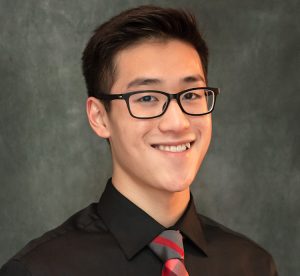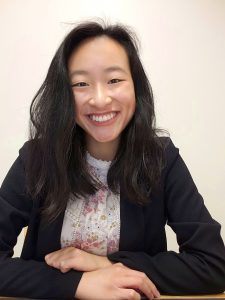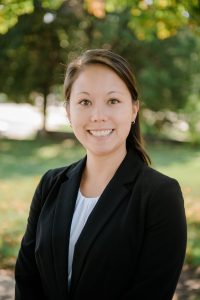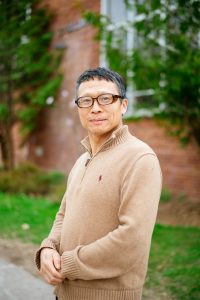
When Isaac Fong arrived at Michigan Tech as a student in 2019, he took note of the professional societies on campus with cultural identities: The National Society of Black Engineers (NSBE); Society of Hispanic Professional Engineers (SHPE); Society of Women Engineers (SWE); and American Indian Science and Engineering Society (AISES).
None existed, yet, for students of Asian heritage. But that was about to change.
“Some friends at other schools encouraged me to start a Michigan Tech chapter of the Society of Asian Scientists and Engineers (SASE). I started asking around my circles to find people who might want to join an interest group for SASE. I found a staff member who was willing to advise the chapter, and then a faculty member,” Fong says. “From there on, we found enough members, and SASE just took off.”
SASE was officially approved through Michigan Tech’s office of Student Leadership and Involvement in March, 2021.
Founded in 2007, SASE is the national go-to organization for talent and leadership development in science, engineering and technology. It’s also a community where students representing all of the pan Asian cultures connect and support each other.
“Any student at Michigan Tech is welcome to join SASE,” Fong says. “Faculty members can be honorary, non-voting members of SASE, too.”

Fiona Chow, a third year student in the College of Business, is a founding member of SASE.
“Growing up, I wasn’t surrounded by many other Asian individuals, other than family. So the opportunity to be a part of a supportive, relatable community is really appealing to me. In SASE we will help each other advance, both professionally and personally,” adds Chow.

She looks forward to possibly attending the SASE national convention and regional conferences in the future. “These events will not only be a great networking opportunity but also a huge learning opportunity.”
“Our first meeting at Michigan Tech was a Zoom meeting with a handful of people,’ she adds. “The engagement and the excitement to be in one space, and to be starting something new, was so exciting and fantastic. I left the meeting filled with anticipation, for getting to know these people more, developing career skills with them, and seeing how the club will grow.”
Liz Fujita, academic advisor and outreach specialist in Michigan Tech’s Department of Electrical and Computer Engineering, serves as co-advisor of SASE. She’s also a Michigan Tech alumna. “I was so excited to hear about the formation of this group,” she says. “It’s one that I wish had been here when I was in college.” Fujita earned two bachelor degrees at Michigan Tech in 2012, Mathematical Science and Social Sciences.

SASE’s goal this fall is to have at least one event per month, adds Fujita. “We’ll host guest speakers, internal resume workshops, and social events, including events in partnership with other affinity-based organizations on campus.”
In the meantime, SASE members formed a summer book club, reading two books: Minor Feelings, by Cathy Park Hong and Interior Chinatown, by Charles Yu.

Zhanping You, a Distinguished Professor of Transportation Engineering in the Department of Civil, Environmental and Geospatial Engineering, serves as the other Michigan Tech SASE co-advisor. “After years of service in various professional groups at Michigan Tech, I believe an organization of Asian students involved in science and engineering is really needed,” he says. “I am very happy to help the start of this new chapter of SASE.”
Dean of the College of Engineering, Janet Callahan, affirms her support of Dr. Zhanping You, Liz Fujita, and SASE. “This will provide a way for our students to connect, and build—and keep building upon these connections,” she says, adding: “And, I am reading Interior Chinatown, by Charles Yu, this summer, in support of SASE and their summer reading project!”
Within the Michigan Tech new chapter of SASE, an Asian Pacific Islander Desi American (APIDA) relations committee will work to amplify APIDA voices on campus and educate others through planned events. For students and working professionals alike, Fong says he hopes SASE activities and efforts will help educate and support students.
“We were all first supported and educated by others,” Fong says. “Now, through SASE, we have the chance to give back.”
Want to learn more about SASE? Contact Michigan Tech SASE co-advisor Liz Fujita.
ISAAC FONG
President, Michigan Tech SASE
Major: Civil Engineering
Hometown: Canton, Michigan (Metro Detroit)
Campus Involvement: Husky Swim Club, ASCE, Success Center ExSEL Peer Mentor, RA
Summer 2021: LEAPS Project Engineer Intern at Barton Malow
How did you first get interested in STEM?
“I grew up playing with Lego sets. I was obsessed with airports and subway systems from a young age. I didn’t really consider a career in STEM until late in high school, when I learned how I could incorporate buildings and infrastructure into my career. Classes in physics, calculus, and humanities all helped pique my interest in civil engineering.”
FIONA CHOW
Founding Member, Michigan Tech SASE
Major: Management Information Systems
Campus Involvement: SENSE Enterprise (“Cool people. Cool projects. Cool advisors,” notes Chow.)
Hometown: Eagan, Minnesota (Twin Cities area)
Summer 2021: Data Engineer Intern at Polaris Inc.
How did you first get interested in STEM?
“It all began in third grade when I switched to a STEM elementary school with opportunities to explore various areas, from engineering to computer science. I started college majoring in Software Engineering and just recently switched to Management Information Systems. It’s a better fit and combination of things I am passionate about—combining people and technology.”